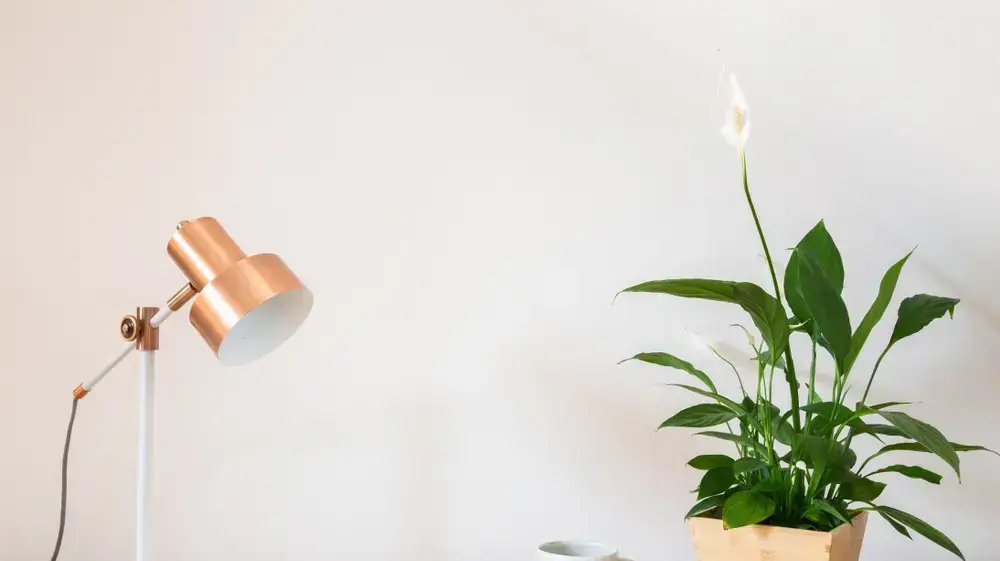That's why you have to plant a pot on your desk in the office
Tu Bishvat has left you with plenty of succulents you have received from your child's boss or kindergarten? Here is a good use for them: A new study claims that a three-minute stay in a small potted plant in front of you will reduce your stress levels at work
That's why you have to plant a pot on your desk in the office
In the video: A story about the preparation of an ecological flower pot that requires minimal care
Mid working day. You suddenly feel pressure in your chest, an increased pulse or just a segmental headache, and are looking for something to distract you from the upcoming staff meeting or unpleasant phone call. Usually it will end with a coffee break or a snack, but they also don't always help to relax, and who has time (or space) to practice meditation or yoga? A team of researchers from Japan may have a solution for you.
More in Walla! NEWS More in Walla! NEWSChildren who study near nature suffer less from ADHD
To the full articleThe researchers felt that workers were underestimating the benefits of or not being aware of the stresses associated with work-related stress, and decided to conduct an experiment to test the stress levels of an electric company in Japan with and without plant involvement.
In the past, many studies have been done on the health effects of vegetation in an indoor, as opposed to natural environment, but most have been carried out in labs or so-called office systems and have included only passive interaction. This study, published in the journal HortTechnology, confirmed the effect of reducing the stress of intentional observation in a plant for several minutes, or in an active partnership in treating it, in a real office setting when a worker felt fatigued.
More in Walla! NEWS
The Health Reasons Why You Should Grow Potted Plants At Home How Many Hours in Nature Do You Need to Feel Good? Host a family on Passover? There is a solution out there: a sofa bed at a price promoted contentThe study was carried out with 63 employees aged 24-60, who worked on desktop screens as part of 40-hour work weeks. To measure employees' normal stress levels during days when they were feeling fatigued, researchers used a 1970 measurement tool called the Feature and Situational Anxiety Questionnaire (STAI), and recorded their morning and night pulse rates. The experiment began with a week-long, no-plant control period during which the participants' heart rate was measured by fatigue, and then tested again after three minutes of staring at their desk. Each one then chose a favorite plant and was told how to water the plant and care for it. During the remaining two weeks of the study, the pulse of the workers was measured for the first time in the same condition, and the second time after three minutes of deliberate look at the plant of their choice and placed on their desk.
After the intervention period, anxiety measures decreased slightly, and the number of participants whose pulse rate decreased after a three-minute rest (a decrease in heart rate demonstrates a sympathetic nervous system, known as the "fight or run" response of the body). Judging by the positive feedback provided by about half of the participants, the affection for their own plant played a role in reducing stress.
If you do not have a flower pot you can also stare at it - three minutes, without thinking and without talking. Flowerpot (Photo: Giphy)
Plant herb gif (Photo: Giphy)
Dr. Masahiro Toyoda, chief author of the study and professor at Hyogo University, where he specializes in gardening therapy, told CNN that the results - if employers actively encourage employees to take "three-minute" breaks, their employees' mental health will improve : "To get good effects of reducing stress through a small plant, enjoy the time of watching the plant for three minutes, without thinking or talking. A situation similar to that of Mindfulness, which pays attention to the present moment. "
This study is "the latest among those who continue to point out that plants are beneficial to humans," commented Dr. Charles Hall, an international florist at A&M University of Texas. "It's something we knew and understood naturally, but suddenly we quantified it and now we see it The numbers behind the reasoning, ”he said.
Research authors have pointed to theories highlighted in previous studies as the basis for the success of their experiment: from the perspective of "attention rehabilitation" - which suggests that people can concentrate better after spending time in nature, or looking at nature - previous studies have found what is called the "soft magic" of plants that matter. exerciser. A small potted plant on the table in the present study provided the opportunity for soft magic in the office environment, the authors explained.
The effect of the plant did not work on everyone, why?
According to the findings, the potted plant on the table did not relieve the stress of all employees in the study. In some employees, the pulse or anxiety level even increased, others did not see a significant change. Despite the fact that the researchers prepared additional plants for use in case one of the plants dies and dies - to prevent participants from feeling anxious or nervous, according to Dr. Hall, it may not have helped people who experience anxiety on a regular basis. "I think the anxiety that actually arose in some participants was that They found themselves responsible for taking care of the plant and then suddenly the plant was unsuccessful, which caused them anxiety, "he said.
And what about those who don't see a change in their anxiety levels? "There is evidence related to reducing human or plant stress," Dr. Toyoda said. "However, when we get used to them or are bored with the same situation, the impact on stress levels may not last as long and with the same intensity."














